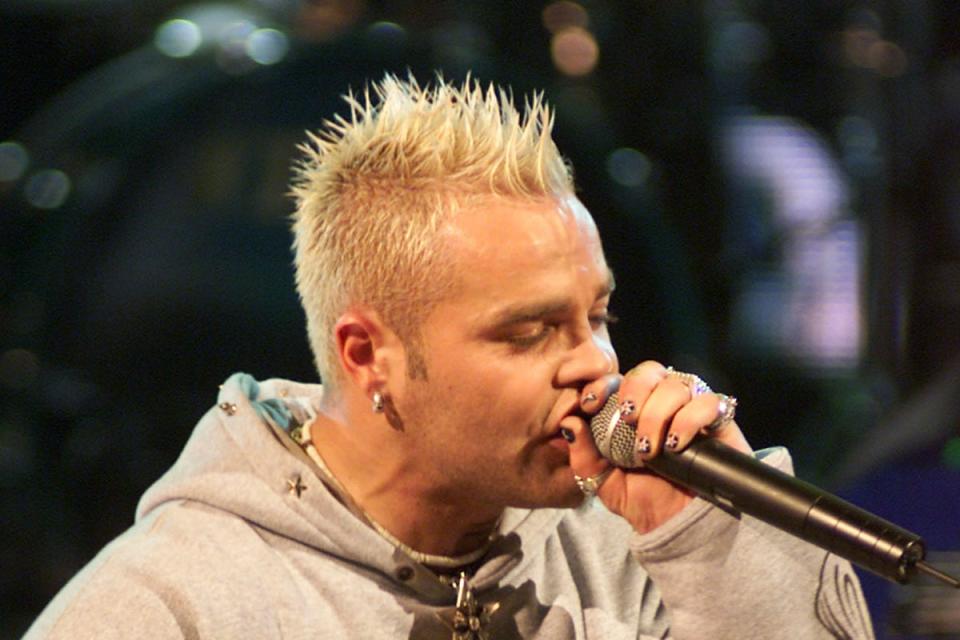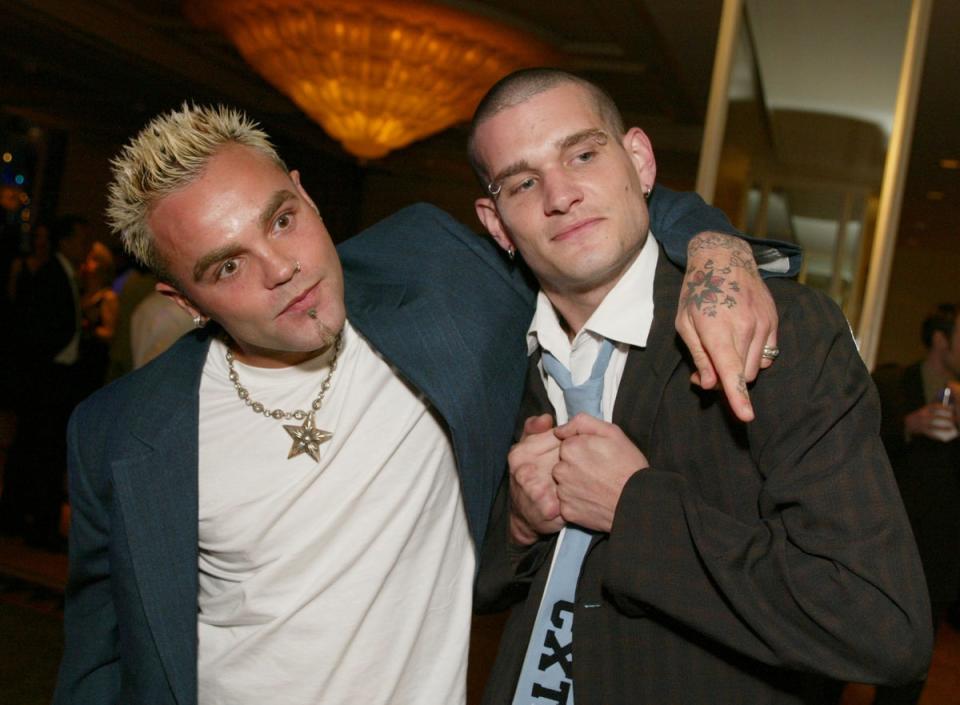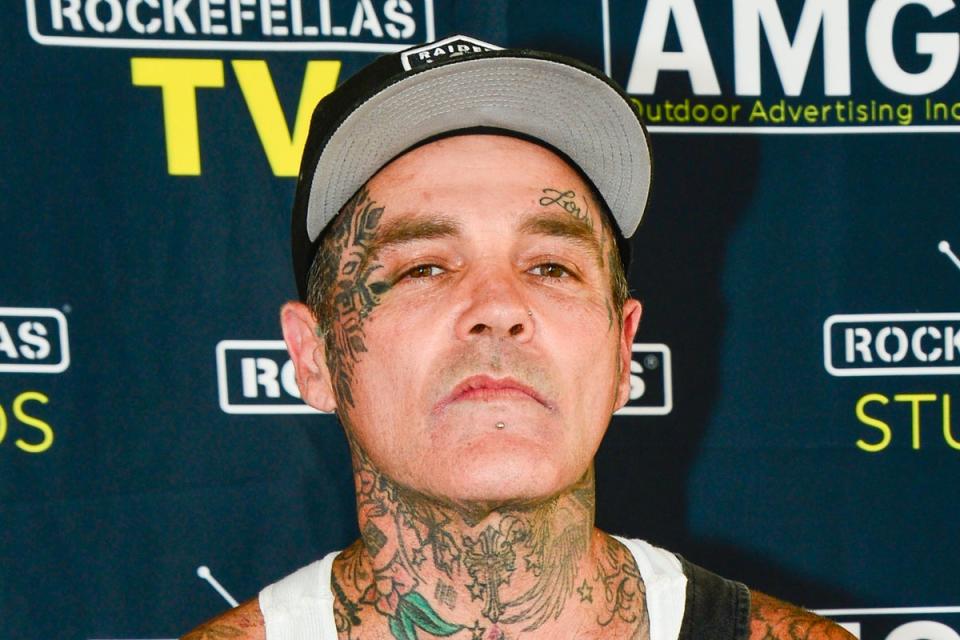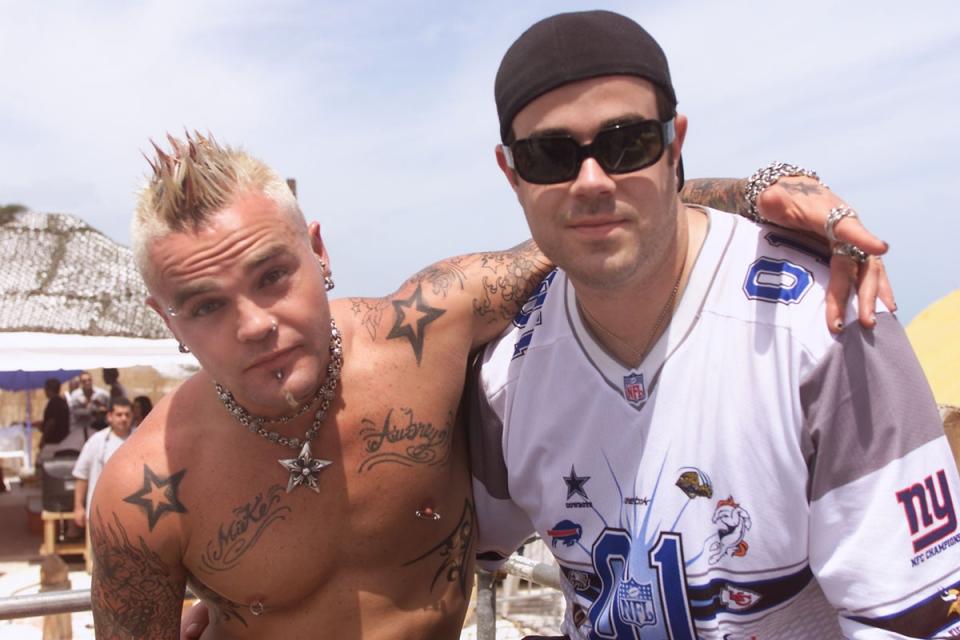Shifty Shellshock’s cause of death disclosed by Crazy Town manager
The manager of the American rap-rock band Crazy Town has said that Shifty Shellshock, who was found dead at his LA home on Monday aged 49, died of an accidental drug overdose.
The musician – whose birth name was Seth Binzer – died at his home on Monday (24 June), according to the Los Angeles County Medical Examiner’s website.
The band’s manager Howie Hubberman said in a statement that Binzer died from an overdose after years of dealing with addiction.
“Seth Binzer, after struggling with addiction and Crazy Town’s rapid success with ‘Butterfly,’ never was able to reach out on a more successful level to deal with his addictions,” Hubberman told People. “We all tried, but ultimately we all failed, or Shifty would still be here.”
“Shifty was a friend and really wanted to get himself fixed – unfortunately no one had the exact tools to do this, myself included.”
The Los Angeles County Medical Examiner has not yet listed a cause of death for Binzer pending the return of toxicology reports.
The band found fame in the late Nineties and early Noughties, thanks to their 1999 hit song “Butterfly”.

Binzer met his Crazy Town co-founder, Bret Mazur, in 1992. They first began making music under the name the Brimstone Sluggers, but changed their moniker in 1999 when they added bandmates Rust Epique, James Bradley Jr, Doug Miller, Adam Goldstein, and Antonio Lorenzo Valli.
They released their debut album, The Gift of Game, in 1999 to reviews, which ranged from tepid to negative. Crazy Town supported the Red Hot Chili Peppers on tour later that year.
Their hit song “Butterfly” was the third track on their debut record. It sampled the Red Hot Chili Peppers’ 1989 song “Pretty Little Ditty”, featuring Binzer’s relaxed rapping style.

“Butterfly” topped the Billboard Hot 100 chart for two weeks, and remains the band’s biggest hit to date. On it, Binzer is heard rapping: “Come my lady, come come my lady/ You’re my butterfly, sugar baby.”
The song was responsible for launching the band into the American music scene, and introducing the band to a new audience when it was played in the opening sequence of Jack Nicholson and Diane Keaton 2004 rom-com Something’s Gotta Give.

The band, however, struggled to match the success of “Butterfly” going forward. They went on a hiatus following the release of their second album Darkhorse in 2003, but reunited in 2007 and released their third album The Brimstone Sluggers in 2015.
In 2004, Binzer embarked on a solo career and released his first album, Happy Love Sick, which received a warm reception in Europe.

By 2017, co-founder Mazur had exited the band and Binzer changed the group’s name to Crazy Town X.
Binzer is survived by his son Halo, whom he welcomed with his first wife Melissa Clark. The pair married in 2002 before divorcing in 2011 after the couple had been separated for several years.
He shares two more sons, Gage and Pheonix, with different mothers.
Throughout his career, the musician was open about his struggles with addiction. In 2008, he appeared on the first season of the reality TV series Celebrity Rehab with Dr Drew, and returned for the second season. Binzer also joined two seasons of its Sober House spin-off series.
In an Instagram post shared eight weeks ago, Binzer wrote candidly about dealing with addiction.
“I’m a lover than a fighter,” he wrote. “But the one I need to love more Instead of fight with is myself .. mr shifty true Love [sic] Sober.”
If you or someone you know is suffering from drug addiction, you can seek confidential help and support 24-7 from Frank, by calling 0300 123 6600, texting 82111, sending an email or visiting their website here.
In the US, the Substance Abuse and Mental Health Services Administration can be reached at 1-800-662-HELP.
If you have been affected by this article, you can contact the following organisations for support: actiononaddiction.org.uk, mind.org.uk, nhs.uk/livewell/mentalhealth, mentalhealth.org.uk.


